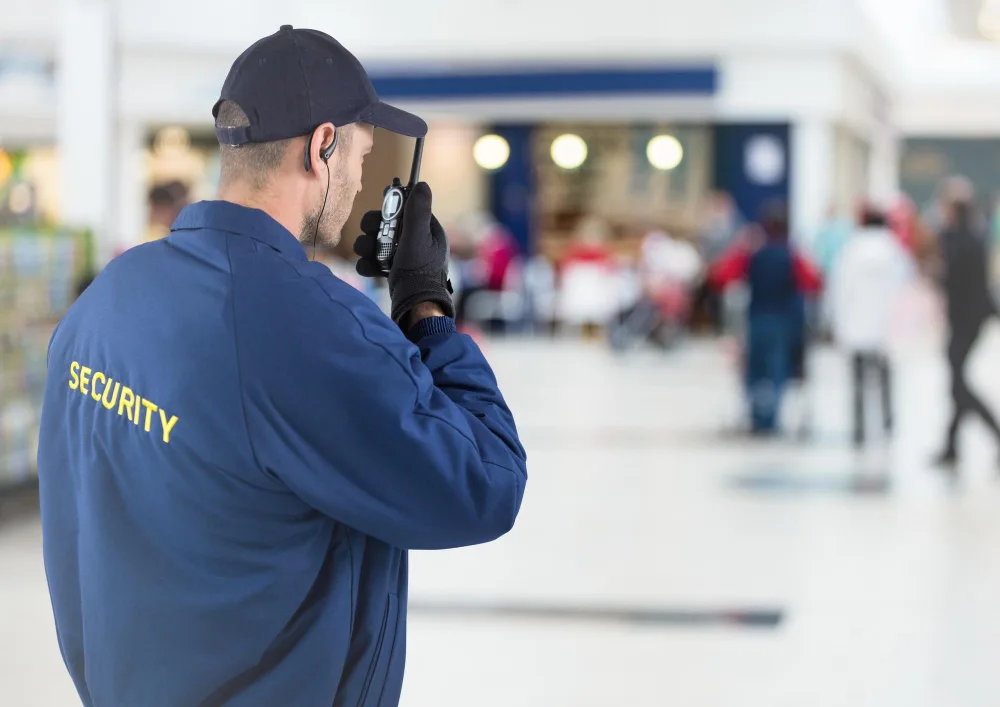Homicides in Atlanta increased for the third year in a row according to statistics from 2022. Unfortunately, crimes like car thefts, burglaries, and shoplifting are also on the rise, too.
If you frequently visit Atlanta, Georgia, then you likely already know that crime has consistently remained a problem in the area for years. Georgia’s crime rate often falls above the national median.
Considering the high crime rate, businesses, property owners, and other land owners often have a legal duty to provide for the care and safety of individuals they invite over to their property. When attacks, like crimes, are reasonably foreseeable, it makes sense that the property owner should take steps to prevent it.
When these property owners don’t take action to protect customers or visitors, injured parties can potentially seek out negligent security claims for compensation. Learn more about negligent security claims, the elements of a lawsuit, and how our firm can help you get the compensation you deserve below.
What are Negligent Security Claims?
When you visit a business or someone else’s property, you expect a certain level of safety. When reasonable steps aren’t taken to protect you and you wind up getting injured, you’re likely to sustain a sudden windfall of losses.
For instance, your injury might lead to substantial medical bills. You may even need extensive future medical care. On top of that, you might wind up missing work for a brief period of time. In the worst cases, you might not be able to return to the same line of work due to the nature of your injury and the recovery period. Depending on the circumstances, you could face other losses as well.
Rather than simply bearing the costs of those losses, injured individuals do have legal recourse in the form of negligent security claims.
Negligent security claims are lawsuits that hold property owners legally liable for the financial fallout of injuries that occur as a result of a lack of security measures on the property. They are based on premises liability laws.
Types of Negligent Security Claims
Negligent security lawsuits are based on the legal duty of property owners to take reasonable steps to ensure the safety of individuals they invite to their property. With that in mind, there are still various different types of claims that fall under this category.
One important factor is where the incident occurred. The following types of property owners could be wrapped up in these types of claims:
- A business owner
- Schools or universities
- The owner of an apartment complex
- A nursing home that failed to protect residents
- A hotel
- The owner of a parking garage
- A bar
- Event venues
- Government facilities
Another important factor is who is liable for the security incident. Depending on the circumstances and facts of your incident, the liable party could be a property management company, the government, a property owner, a security company, or someone else.
Finally, the severity of the injury the person sustains makes a huge difference in the type of claim the person will seek out. When injuries and losses are minimal, claims are more straightforward. When injuries are life-long or long-term, the situation inevitably becomes more complex.
Understanding a Property Owner’s Legal Duty of Care
When you’ve been injured in an incident that you think might be the result of a lack of security measures, the first thing you need to do is determine whether or not a legal duty of care existed. Where there is no legal duty of care, there is no basis to seek out a claim.
Per Georgia Code §51-3-1, the owner or occupier of land is liable for damages to persons for injuries caused by his failure to exercise ordinary care in keeping the premises safe when they lead others to come on their property by express or implied invitation.
If you’ve read through this law and you’re still not clear whether a legal duty of care existed in your situation or not, then it might be in your best interests to contact an Atlanta negligent security attorney about what happened. During an initial consultation, your lawyer should be able to help answer your questions so that you can make an informed decision on whether seeking out a claim is worth your time and effort.
Legal Standards for Negligence
Under the law, you likely noticed the caveat that the property owner must have failed to exercise “ordinary” or “reasonable” care. This duty of care seems straightforward, but it can get complicated because the duty to provide security might vary depending on several factors.
For one, it makes a difference whether the harm was foreseeable or not. It wouldn’t be reasonable to assume that businesses could prevent every random act of violence. It would, however, be reasonable to assume that an apartment complex would install working locks to their doors if they experienced repeated break-ins and violent crimes in one specific area.
Another factor that makes a difference is the ease of providing specific security measures. For instance, it wouldn’t be reasonable to assume that a security guard monitoring a parking garage at a major concert event would be able to prevent a car theft. It would be reasonable, however, to assume that the concert event coordinator would hire security guards, install cameras, and inform their guests about the possibility of theft.
Criminal Activity
In general, when a violent crime has already occurred on the property in the past, then it’s reasonable to assume that the business owner would take action to prevent similar crimes in the future. It’s not reasonable to assume they’d be able to stop every crime, though.
Here are a few reasonable steps a business or property owner should take if criminal activity happens regularly in the area:
- Warning visitors
- Hiring security guards
- Installing cameras
- Adding appropriate lighting
Inadequate Security Measures
What constitutes adequate security measures for a specific property may vary. In general, though, adequate security measures protect visitors from harm, whereas a business can be guilty of having inadequate security measures when a business fails to keep visitors safe.
Adequate Lighting and Other Basic Security Measures
Adequate lighting is a basic security measure that businesses should take advantage of, especially if the property they own has visitors at night. Adequate lighting helps prevent crimes because offenders aren’t afforded the cloak of darkness to operate under. Lights can potentially reveal what a criminal is up to, so they tend to avoid highly lit areas.
What’s more, a lack of proper lighting can hinder other types of security measures. For instance, a surveillance camera may not be able to work as efficiently if there isn’t enough lighting in the area it’s recording.
Technology-Based Security Solutions
Negligent security can also arise when a business lacks technology-based security solutions to protect visitors. In general, technology can be used to help secure premises, act as a preventative measure against crime, and identify culprits in the event a crime does occur. Technology-based security solutions include things like installing a security camera system, creating an electronic-based locking system for your building, having an alarm system put onto your property, or other measures.
Proving a Duty of Care Existed
There are four basic elements of a negligent security lawsuit. The first, and most fundamental, factor you’ll need to prove existed in your claim is that the other party had a duty to provide for your care.
As explained above, Georgia law explains that all property owners have a duty to provide for the reasonable care of invited guests.
Commercial Properties: The Legal Responsibility of Business Owners, Apartment Complexes, and Retail Stores
If the property is commercial, then it’s important to recognize that a legal duty to provide for the care of customers is automatic under the law. You won’t need to do much to prove that a legal duty of care existed if you are pursuing a claim against the commercial property owner.
Proving a Breach of Duty of Care
The second element you’ll need to prove in a negligent security claim is that the party you’re pursuing a claim against breached their duty to provide for your safety and care. To prove this breach of duty, you’ll need to show that the property owner failed to take reasonable steps to secure your safety. This might mean they had inadequate safety measures, a lack of security, or failed to hire security guards.
Proving the Direct Causation Between Lack of Adequate Security and the Injury
Next, you need to prove that there is a direct link between the property’s lack of adequate security and the damages or injuries you sustained. In other words, you’ll need to show that if adequate security was in place that the crime wouldn’t have occurred.
Proving Your Damages
Finally, you’ll need to prove that your injury led to specific damages and losses on your part. To prove these damages, you’ll want to provide evidence like medical bills, wage statements from your employer, proof of any property damage, or other documents that outline your losses.
You can increase your overall settlement amount by also pursuing punitive damages if you believe that the other party’s negligence was extreme. For instance, if several violent crimes have already occurred at a specific hotel, then the hotel would be considered extremely negligent if it ignored multiple crimes and failed to act in response to them. Another type of extreme negligence would be if a staff member was alerted to an ongoing security threat and they failed to respond to it or call for help.
If t he case happened in the Atlanta area, you can always contact our Sandy Springs negligent security lawyer for an assistance with your case!
How to Handle Your Negligent Security Claim Like a Pro
Do you think that your recent incident might give rise to a negligent security claim? Are you facing substantial financial losses like medical bills, lost wages, and more?
Negligent security claims are complicated to pursue, so in most cases, it makes sense to hire a legal representative to help you better understand your options.
Here at Singleton Law Firm, we’ll help you understand your legal options, document your losses, value a potential claim, and file your official lawsuit. Leave a message or call us now to get in touch with our best negligent security attorneys.



